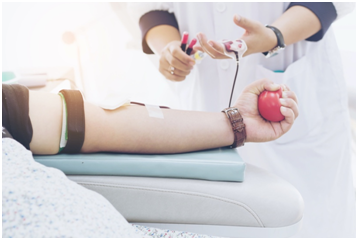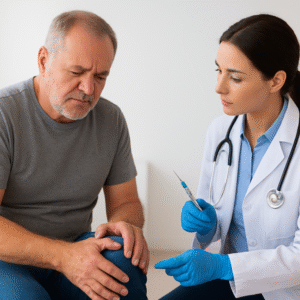What happens when you donate blood?

More than 5,000 Australians give blood at a Lifeblood donor centre every day. Donating blood isn’t just a five-minute process, there is more that goes into making sure you and the person receiving your blood is kept safe and healthy.
The home doctor experts at House Call Doctor have all the information you need to know about donating blood.
Before you donate
It is very important to assess your health on the day of your donation. If you have a cold or flu or have experienced an upset stomach in the past week, you may not be able to donate. It is also important to make sure you have had lots of water and food leading up to your donation. You can check your eligibility here.
When you arrive
You will be welcomed by a staff member who will check your valid ID and ask you to fill out a donor questionnaire. The staff member will go through the questionnaire with you and will give you a finger prick test to check your level of haemoglobin (a protein which contains iron) and test your blood pressure.
When you donate
It’s time to sit back and relax when your blood is taken. A staff member will keep an eye on you to make sure you’re okay. It will take around 15 minutes to donate and 45 minutes for the whole appointment.
After you donate
You’ll be required to stay for 15-20 minutes after you donate to make sure you’re feeling alright. Make sure to drink plenty of fluids and eat regularly following your appointment. If you feel unwell after you donate, contact your GP or blood donor centre.
FAQ’s
Who can donate?
You need to be 18-75 years of age, weigh 50kg or more and be fit and healthy.
What is my blood used for?
Blood can be used for cancer, blood diseases, heart disease, anaemia, stomach disease, kidney disease, childbirth, operations, blood loss, trauma, and burns.
How often can I donate?
You can donate every 12 weeks.
If you want to donate blood check out the link below.






